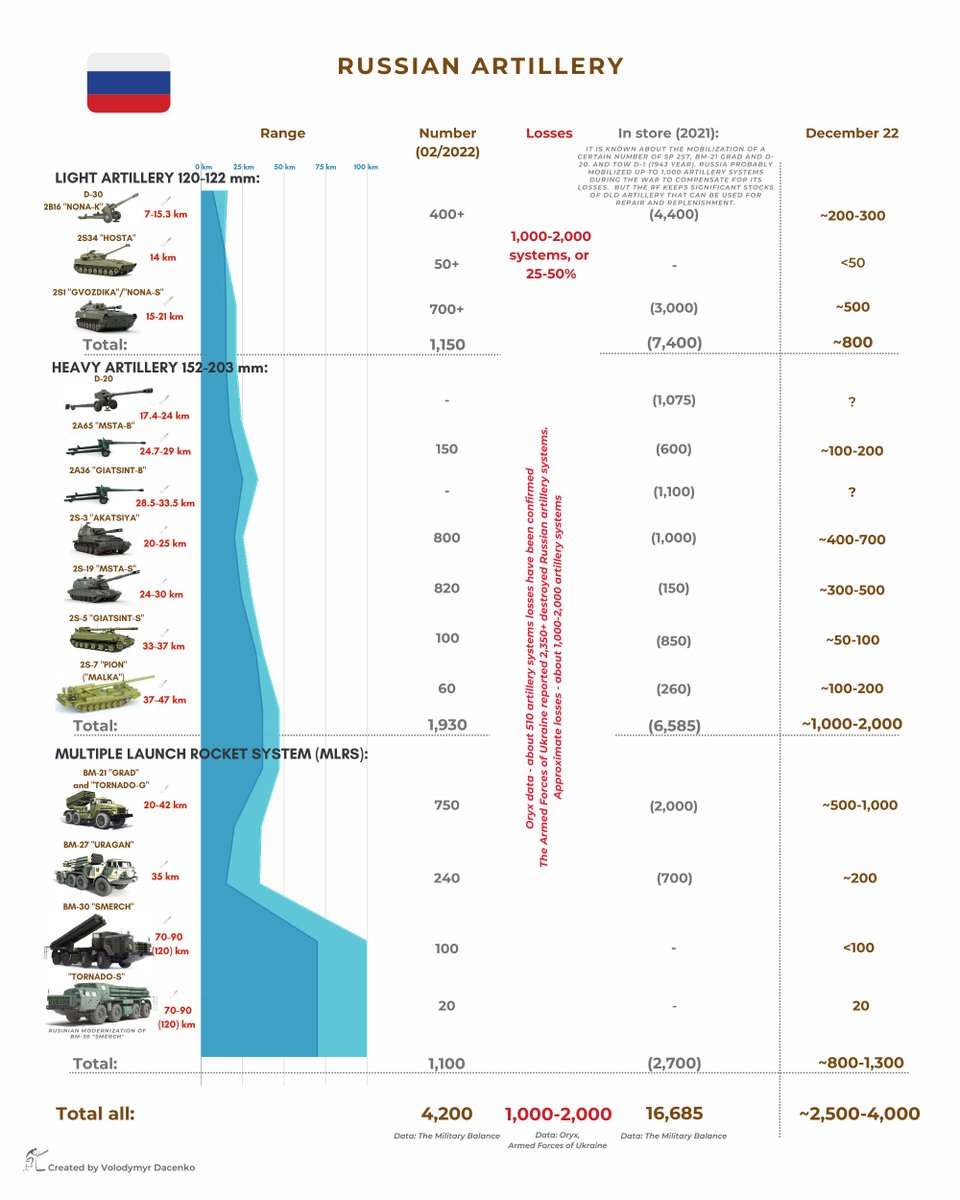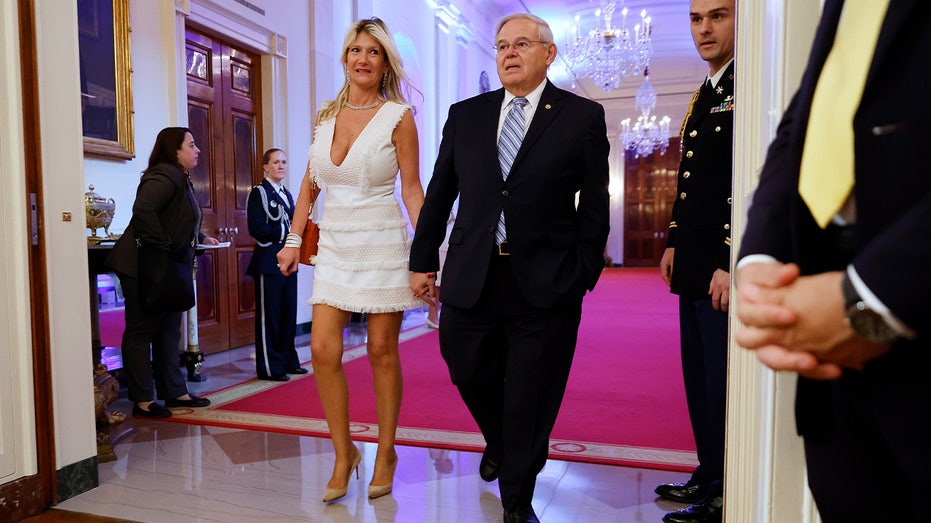Analyst: Russia demothballs 7.5x more artillery than West sends Ukraine
Ukraine is grateful for every piece of equipment, but for any kind of breakthrough, more weapons are needed, says Volodymyr Dacenko The post Analyst: Russia demothballs 7.5x more artillery than West sends Ukraine appeared first on Euromaidan Press.

Ukrainian military analyst Volodymyr Dacenko recently examined the peculiarities of the ongoing struggle for resources between Ukraine and Russia.
Dacenko explains that Ukraine’s requests for more weapons should not be seen as ingratitude, but rather a reflection of Russia’s ability to tap large stockpiles.
Dacenko estimates Russia has removed about 6,000 howitzers, 1,000 self-propelled guns, and 500 MLRS from storage since February 2022. This dwarfs Western supplies to Ukraine. Although Russia failed to regain artillery dominance, its doctrine allows absorbing major losses while persisting strategically.

Restoring armored vehicles is slowed by technical issues, with Russia only supplying around 100 refurbished tanks to the front each month.
Dacenko argues a protracted war benefits Russia, allowing time to consolidate occupied regions while waiting for Western support for Ukraine to decline.
He says Ukraine’s counteroffensive has not fundamentally changed circumstances, as both sides retain ability to continue fighting. Russia’s defenses remain stronger than anticipated.
Dacenko believes when General Zaluzhnyi speaks of a “stalemate,” he signals a need for enhanced Western aid. Ukraine urgently requires additional capabilities to target Russian logistics, aircraft, and drones.
In summary, Dacenko contends Ukraine faces a significant Russian resource advantage, making increased Western military assistance critical to defeating Moscow’s existential threat.
Full analysis by Volodymyr Dacenko
When Ukrainians say that we need more weapons, the West often thinks that it is a sign of ingratitude. In fact, Ukrainians are grateful, but there is another side – how many weapons your enemy supplies to the front.
Many people look down on the Russian army after its defeats in Ukraine in the first year of the war. But the Russian doctrine is based on the fact that Russia is able to withstand heavy defeats and incredible losses, but not to give up its political goals.
Russia is still a significant power, if not in terms of the quality of weapons, but in terms of their quantity. Since the beginning of the war, Russia has removed approximately 6,000 howitzers from its storage facilities. This number allowed Russia to compensate for the huge losses from the HIMARS counter-battery and the wear of the barrels due to the frantic pace of fire. No other country could compensate for such losses.
Russia also removed approximately 1,000 self-propelled guns and 500 MLRS from their warehouses.
In total, this is 7.5 times greater than the volume of artillery supplied by the West. And even so, Russia does not have an advantage in artillery now.
The supply of Russian artillery is running out. After all, Russia has probably removed most of the relatively modern artillery systems from storage.

Restoration of tanks, armored vehicles and self-propelled guns is somewhat more difficult, because it requires restoration of engines, control systems and other complex components. According to media estimates, Russia supplies up to 100 tanks to the front every month.
Russia planned to reach the rate of 130 tanks per month but faced technical problems. At the beginning of the year, it became known that Russia restored three times less T-62 tanks than planned. Probably because of this, Russia had to get the “Stalin’s tank” T-54/55 to light.
Russia is not limited in the resource of tanks and armored vehicles, because it has a lot of them in warehouses. But Russia is limited in the possibility of their restoration. Therefore, it is not beneficial for Russia to increase the dynamics of the war.
Putin needs the war to be slow and long, so that he can wait for the West to tire of supporting Ukraine and achieve his goals – to approve the occupation of the south and east of Ukraine and prepare for new wars.
Now about supply to Ukraine: In general, we see that the West’s efforts to supply heavy weapons were significantly greater in the first year and peaked in January-February 2023.

The further supply of weapons to Ukraine faced two main problems: – lack of a clear strategy for supporting Ukraine after the start of the counteroffensive; – blocking of funding due to political processes within countries.
The planning of support for Ukraine was based on the expectations of the West that the counteroffensive would become a certain starting point, after which the situation would change fundamentally and the war would either finally come to a stalemate, or Russia would lose its perspective.
But after the start of the counteroffensive, a large number of unpredictable factors intervened in the situation.
- The defense lines of the Russian army turned out to be much stronger than expected. This made the counterattack long and slow.
- North Korea began direct supplies of ammunition to the Russian Federation on a large scale, thereby postponing the collapse of Russian artillery.
- The Armed Forces continue to inflict huge losses on Russia in active defense in the east.
After all, both sides still have the resources to continue the war, and its fate is as uncertain as it was a year ago. Globally, the counteroffensive, at least not yet, has not brought fundamental change, and the West was clearly not ready for it.
When Zaluzhnyi talks about the “stalemate situation”, he is not talking about hopelessness; he is talking about the fact that changes are necessary.
A few important aspects:
- Ukraine loses less equipment and Western equipment is more efficient. In general, the loss ratio is about 1/3. Therefore, it is not necessary to estimate the numbers in a straight line.
- The lack of one type of weapon can be compensated by other possibilities (for example, deep strikes, you can exhaust logistics, without which military equipment is not effective).
- Air supremacy remains Russia’s main advantage, which limits ground operations. Ukraine’s advantage in long-range artillery, on the other hand, compensates for the smaller number of weapons and limits the actions of the Russian army.
- Defense systems are becoming more and more effective. Minefields, FPV, ATM, etc. have become a significant factor that complicates the offensive (but does not make it impossible if the conditions are there).
Obviously, Ukraine needs additional capabilities in addition to heavy weapons, as General Zaluzhnyi says. This is the ability to exhaust Russian logistics, counter Russian bombers and helicopters, counter enemy drones, etc.
Power parity is not hopeless, but it requires more effort. Ukrainians understand that in the future, Western partners will have to make greater sacrifices. But without this sacrifice, we will not defeat this threat to democracy that is gradually spreading around the world.
So when we say we need more guns, it doesn’t mean we’re ungrateful. Thank you for everything you have done and will do again!
Related:
You could close this page. Or you could join our community and help us produce more materials like this.
We keep our reporting open and accessible to everyone because we believe in the power of free information. This is why our small, cost-effective team depends on the support of readers like you to bring deliver timely news, quality analysis, and on-the-ground reports about Russia's war against Ukraine and Ukraine's struggle to build a democratic society.
A little bit goes a long way: for as little as the cost of one cup of coffee a month, you can help build bridges between Ukraine and the rest of the world, plus become a co-creator and vote for topics we should cover next. Become a patron or see other ways to support.
The post Analyst: Russia demothballs 7.5x more artillery than West sends Ukraine appeared first on Euromaidan Press.



